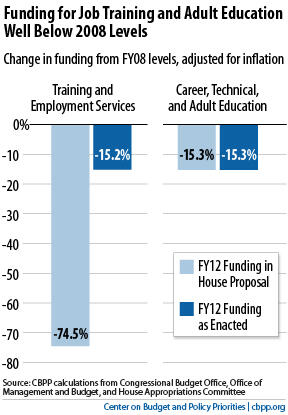BEYOND THE NUMBERS
House Republicans say that the proposals they are pushing in negotiations over continuing emergency federal unemployment insurance (UI) will “promot[e] more job search and education and training needed to help the unemployed get back to work sooner.” In reality, those changes would be fundamentally unfair to jobless workers and do little if anything to put them back to work.

House Republicans would also allow states to use UI funds for purposes other than paying UI benefits. This would undermine the fundamental purpose of the UI system since its creation in the 1930s: providing temporary financial support for individuals with work histories who have lost a job through no fault of their own.
While states could use the diverted UI funds to expand job training, they also could use them to replace state or local funding for job training and then shift the withdrawn funds to other uses, including tax cuts. The net result could be a reduction in UI benefits with little or no offsetting increase in employment services.
If policymakers really want to improve outcomes for less-educated, lower-skilled workers, they need to invest more in job training and adult education programs to make them more available and effective. Unfortunately, they’ve done the opposite. House Republicans have backed the large cuts that Congress has made in federal funding for job training and adult education in recent years and have pushed for even bigger cuts.
As the chart shows, federal funding for both job training and adult education is well below levels set before the recession began — and the cuts in job training would have been much deeper under the House-passed version of the 2012 budget.
Further cuts are likely as Congress seeks to comply with the Budget Control Act’s annual
on discretionary spending. Moreover, have exacerbated this problem.Helping unemployed workers improve their skills is important — especially while jobs remain extremely hard to find (there are four job-seekers for every available job). But job training, adult education, and other such services should complement basic unemployment compensation, not replace it.
